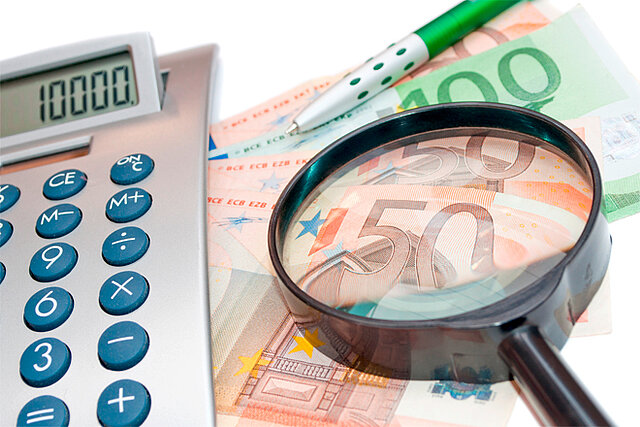Like many other relief organisations, the German Red Cross asks for donations for those in need, not only before Christmas. But not every charity is trustworthy. For many years now the independent “German Central Institute for Social Issues” (DZI) has been giving advice and recommendations on how donors can sensibly use their money.
1. How can I recognise an untrustworthy charitable organisation?
In the normal course of things, a donor does not have the chance to gain insights into an organisation. But it is fairly easy to identify a lack of trustworthiness in the type of fundraising advertising an organisation uses. Does the organisation have a clearly described scope? Or is the main emphasis on emotions? Obviously, all advertising has to do with emotions but that should not go so far as to create a sense of compulsion. An example of such an approach could be a letter with pictures of dying children. Or if one’s bad conscience is played upon. 1 If fit says on the envelope „Please donate within 10 days!“ and the letter goes on to tell me four to five times in an unrelenting personal fashion of the urgency and the need for immediate help, that is definitely pressurising you. That is not a responsible or trustworthy approach.
2. Hundreds of organisations contact potential donors in the pre-Christmas period. How should a donor reach his/her decision?
There really is a huge choice out there. You should not spread donated money too thinly. A good approach is to choose one or two trustworthy organisations per year to whom money is donated. This makes it much easier for the donor to keep an overview. And it also means that the aid is more efficient. Each single donation involves a certain amount of administration. And that administration is of course higher if I donate 10 Euro to 10 organisations rather than 100 Euro to one organisation.
3. Is it better to donate for an undesignated purpose or better to tie my donation to something specific?
Normally undesignated donations are better, meaning I donate to an organisation I trust. If I trust an organisation then I can also be certain that it will use my money effectively and professionally and reach competent decisions as to which project has the more urgent need for funds. On the other hand there are also definitely cases where a designated donation makes sense, for example after a disaster. For example the catastrophic famine in East Africa. If I know that the organisation is targeting its relief there, then it can make sense to make a designated donation. Undesignated donations do, however, mean that relief organisations can dispose over funding for issues which are not immediately in the public eye. For example long-term development aid.
4. What is better - money or donations in kind?
Donated money is fundamentally more flexible, less costly and more efficient than a donation in kind. In that sense, donating money is the better gift. A donation in kind really only then makes sense if there is a specific request for such donations. As a rule organisations are more likely to ask businesses for donations in kind, organisations which can then donate large quantities of specific assets. For example medication. If I wish to make a donation in kind as a private person, for example clothing, I would normally first of all look around my neighbourhood to see whether there is a clothing charity where the donation can be made. Or I can put the clothing into a clothing bank, provided it is an organisation I trust.
5. What is the basis for the DZI giving its seal of approval to an organisation - that it is trustworthy?
We base such decisions on specific criteria, all of which are available on our website. Basically there needs to be clear, unequivocal advertising for fundraising purposes. Advertising which does not put donors under pressure. There has to be a clear distinction between the organisation's executive and its supervision. The financial situation must be transparently presented and donations must be economically used. And as of very recently, we also demand a system to monitor effectiveness, which means that all relief projects are regularly reviewed as to success and failure, and that the results of those reviews are reported in the annual report.
6. Are all organisations without the DZI seal of approval untrustworthy?
No, of course not. The DZI seal of approval is not a licence to raise funds. It is intended as an award of distinction. 30 per cent of those organisations which apply for a DZI donation seal are rejected. Despite this, organisations can do good work to a certain extent, but there are definitely sticking points with respect to best possible quality. But if an organisation has no donation seal of approval, then as a potential donor I should seek to gain more extensive information. In one’s local environment, you can and possibly should have faith in those organisations which you know personally and of which you have a good impression. For example local sports clubs. If on the other hand you do not have any personal knowledge of an organisation, then the DZI seal of approval can be a great help. Because the seal means that you know that the organisation has verifiably satisfied demanding criteria. Our website also includes a great deal of information provided by the DZI about organisations which do not bear the donation seal of approval.
7. Is there anything else which I need to take into account if I intend to make donations in the run-up to Christmas?
You should give your gifts some thought. Do not act under pressure or spontaneously. If you are surprised into and hurried into making donations, that is exactly when you should not make a gift.
For more information about the DZI and about donations to the Red Cross go to:

